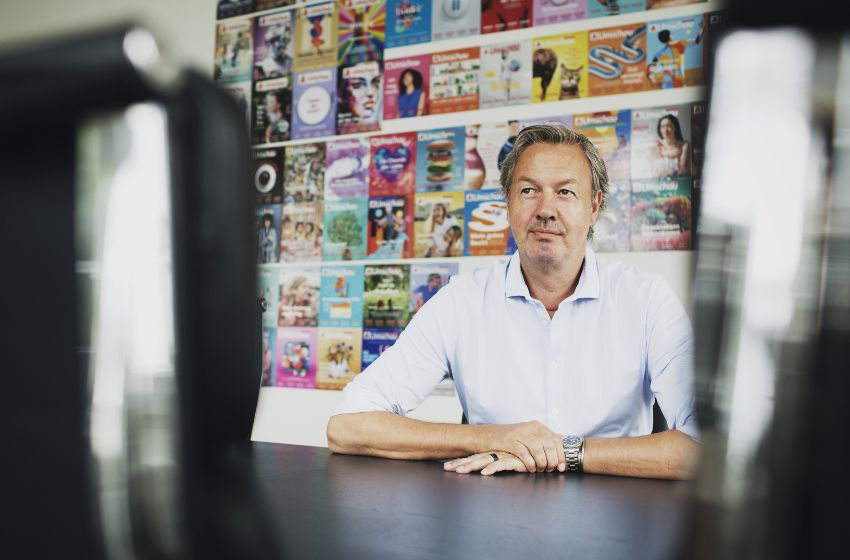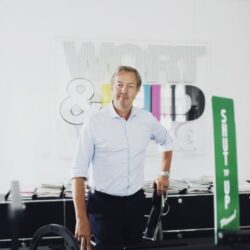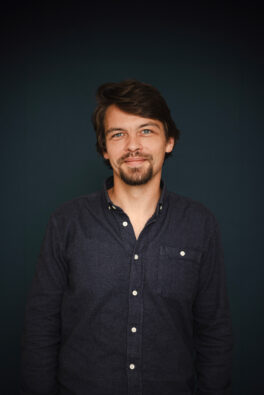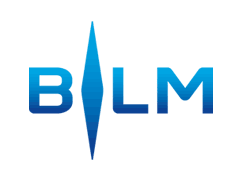
Wort & Bild Verlag: Entering The Digital Future
Almost everyone in Germany is familiar with “Apotheken Umschau” – but only industry insiders know that Wort [&] Bild Verlag is behind it. An interview with Managing Director Andreas Arntzen provides a deeper insight into the publishing group, whose optimism and openness to technology not only has target groups in mind, but also employees.
Mr. Arntzen, you joined Wort [&] Bild as CEO in March 2016 and are responsible for all business divisions. How has the publishing group developed since then?
Andreas Arntzen: There are two periods. My first three and a half years were about getting to know each other, building trust, optimizing structures and primarily operating in the core business. We were able to achieve so much success in these areas that we as management were given the confidence to take further steps: to diversify, digitalize and grow inorganically. This has characterized the last four years and we will continue to do so.
What did this inorganic growth look like and why was it necessary?
Arntzen: In the first 64 years of its existence, the company did not make a single investment. We concentrated one hundred percent on publications. That was also the right channel for conveying health-related information to consumers. However, the world has changed in the meantime, particularly as a result of digitalization. We have taken this into account in the last four years with over thirty investments and start-ups.
The publishing house has broadened its base. Is this important for all media companies in order to remain competitive?
Arntzen: We want to be a growing company. Any organism that doesn't grow will die at some point. This is difficult from the traditional print business alone, which is why we are diversifying.
Every investment and every start-up should be economically viable in its own right
By investing in other companies.
Arntzen: Yes, but we are not a financial investor. We only invest where we believe we can offer strategic added value. When we invest in start-ups, we want to build something new together with them. It's also about showing the market how we think, what our culture is and how we see the future. We offer our services, but also leave room for maneuver. I think we have found a good tone and way of dealing with young companies.
Do the companies' expertise complement each other?
Arntzen: Our golden rule is that every investment, every shareholding and every start-up should be economically viable in its own right. The word “should” is important because young companies in particular need time. That's why we draw up a business plan together. If we can use synergies within our portfolio, all the better. However, this is not a necessary criterion for an investment.
You have also driven the digitalization of Wort [&] Bild Verlag. What was your approach?
Arntzen: We are not digitizing for the sake of digitizing. We use technological progress to better meet the needs of our customers. We are constantly looking at what opportunities we have to make what we did well yesterday even better tomorrow. We look at new developments and think across the board: from service and performance to media content.
What strategy are you pursuing with regard to new technologies?
Arntzen: We have a clear vision in which three concepts play a major role: Curiosity, positive thinking and partnerships. Take artificial intelligence, for example. First you have to get to grips with it, open your eyes and try it out. Then you can recognize opportunities and develop a positive approach. Nevertheless, every change also harbors risks. The current dynamic is not only fast, but also enormously complex. That's why partnerships are needed. We enter into discussions with partners from other sectors and consider how we can better grasp change and use it to our advantage. This is our basic approach, which we bring to life at various events, for example. We invite external guests because we are open-minded and enjoy exchanging ideas with others about how markets are changing. We also motivate every single employee to be curious, to look left and right and to engage with change.
In the digital space, media brands are finding it increasingly difficult to place their own content prominently between social media content and AI results. How do you deal with this?
Arntzen: We are seeing a really dangerous inflation of dubious health content. We have a zero-error tolerance for health information, which we have been practicing for 68 years. We have scientific advisory boards that check facts extremely conscientiously and precisely. We turn down seven-figure advertising revenues every year because the scientific advisory board says that a customer's ad is not worded properly. We do everything we can to be the beacon for serious and evidence-based health-related information in Germany. Our aim is not only to provide reliable, empirically based information. The aim of information must be that the recipient understands this information in the best possible way and can use it for themselves. This is why we also provide information in plain language for most of our content. We can save lives with what we do. This also motivates our employees. We have grown significantly over the last eight years, while at the same time retaining all of our managers. This works because we offer exciting tasks. Because we keep pace with constant progress with a clear focus on the needs of our readers.
With “Apotheken Umschau”, you have an institution when it comes to health information. What is crucial for your brand to retain this attention?
Arntzen: You have to keep reinventing yourself. Just as we keep our finger on the pulse of the times with the entire publishing house, the same applies to “Apotheken Umschau”: We deal with social change. For example, people used to only deal with the topic of health when they were ill. Today, the topic of prevention plays a much greater role. We also have taboo topics in the “No taboos!” section of the magazine, which deals with topics such as contraception, hemorrhoids or incontinence, which would not have been covered 20 years ago.
What has changed that these formerly private topics are now in the magazine?
Arntzen: The world has become more transparent. This is also partly due to digitalization. Today, everyone can report on everything. We have to do justice to this transparency. It is also important to express an opinion on trends circulating online, some of which are wrong and can be dangerous in the healthcare sector. In this inflationary variety of content in the healthcare sector, we are demonstrating that we are guaranteed to have reliable information.
The advantage of print: It offers latent searchers added value
Does “Apotheken Umschau” stand for this opinion as a brand or do you position your editors as experts?
Arntzen: Apotheken Umschau is a strong brand that readers trust. We have almost ninety percent brand awareness (86.2%). For example, people search for a symptom, find a “Apotheken Umschau” entry and choose our article first. At the same time, this brand is being shaped more and more by the people behind it. The editors are increasingly becoming the brand. This is how we show transparency. However, it is not an obligation for editors to become a brand. Above all, it's about using and promoting individual skills in the best possible way. One person, for example, is more of an introvert, writes great copy but doesn't want to be in the public eye. The other is extroverted and loves being on stage. We find opportunities for both character traits so that employees can develop and give them maximum scope for development. We also see this as our task.
What prospects do you see for the print magazine?
Arntzen: We are of course experiencing the structural shift towards digital offerings. But I really value print because it also offers a lot of added value to latent searchers. This means that if you have a specific question, you look for an answer online or go to a doctor. Nobody is waiting for the next cover story on their individual problem. But if you are generally interested, you will always find information in “Apotheken Umschau” that you will find exciting and that will increase your own health literacy. That is our performance promise and we keep it – with success: the average reading time of “Apotheken Umschau” is ninety minutes. That speaks for itself!
Bannerbild: Photo: Daniel Delang




